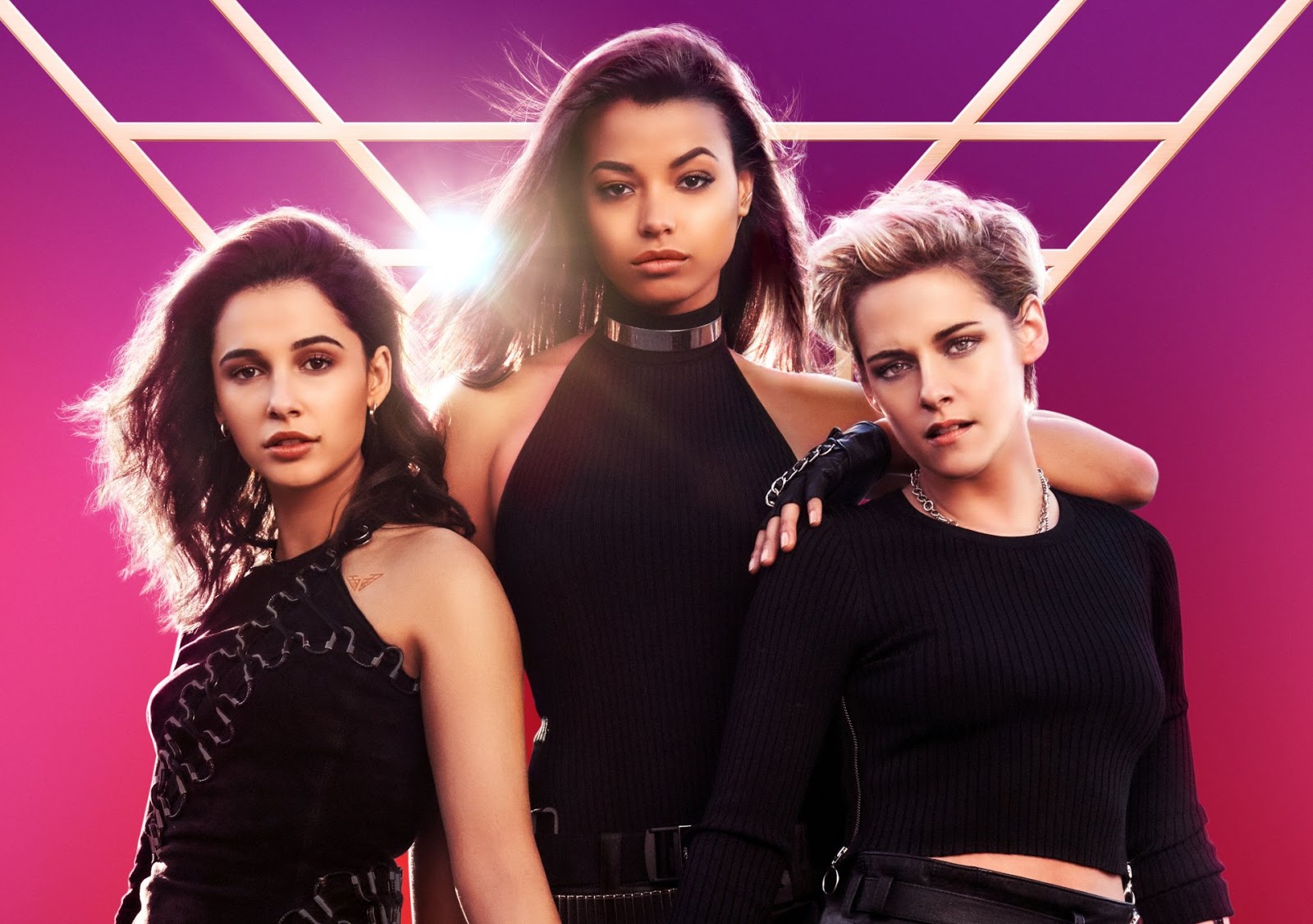With the proposed Equal Rights Amendment sweeping the United States with huge social reform when it came to womens’ rights in the 1970’s, the television industry aimed to capitalize on the potential female-first future of entertainment with a new wave of high-profile shows designed around female protagonists. While many of these efforts, like The Bionic Woman, Police Woman and The Mary Tyler Moore show don’t appear to have lingered in the pop culture consciousness today, one clear exception to this rule is definitely Charlie’s Angels, which, despite its questionable storytelling, remains remembered and beloved as one of the first shows to successfully launch a female-driven blockbuster property on the small screen, before it was cool to do so. As the old adage goes, the more things change, the more they stay the same as well, with the 2010’s also seeing a huge push towards female-driven blockbuster TV and movie entertainment, in the wake of the fourth-wave feminist movement, which naturally saw a reboot of Charlie’s Angels being launched on ABC in 2011… Which didn’t even make it to its initial eight-episode order before ABC yanked the show from the airwaves with an abrupt, unceremonious cancellation.
Okay, so clearly Charlie’s Angels is no longer quite the female empowerment juggernaut that it once was. There does however remain the option of the movie space, which Sony already utilized to deliver two reasonably profitable blockbusters in 2000’s Charlie’s Angels and 2003’s Charlie’s Angels: Full Throttle. Since it’s probably a little too late to revisit that rendition of the franchise in 2019 though, we once again have a new big screen Charlie’s Angels reboot with a new cast (albeit one that treats the former 1970’s TV series and the 2000’s-era movies as in-canon), one made on the cheap with a budget roughly half that of 2000’s original Charlie’s Angels movie (that’s not even factoring in inflation either!), and entrusted almost entirely to actor-director-writer-producer, Elizabeth Banks, who directs, writes, produces and plays a supporting role in 2019’s Charlie’s Angels, go figure.
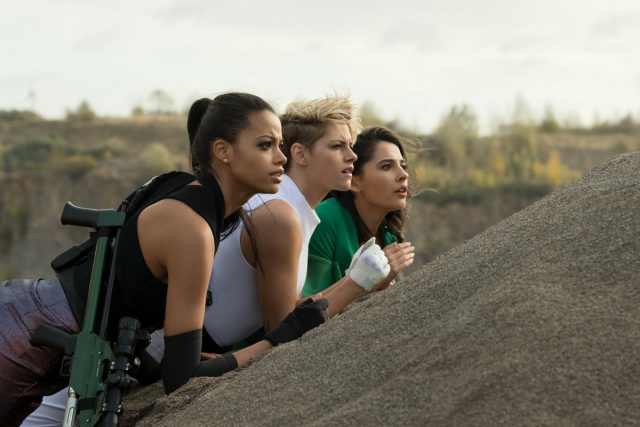
Banks is clearly relishing the opportunity to try and both reinvent and reinvigorate the Charlie’s Angels franchise as well, with a more international scale to the Angels’ Townsend Agency, a pulpy new direction that attempts to add more narrative gravitas to the usual Charlie’s Angels storytelling, and some new creative hooks that see considerable shake-ups to the familiar style of Angels, and their handler, Bosley (now handlers). This all sounds good in theory, and at times, it can be pretty exciting too, more successfully presenting a truly female-first Charlie’s Angels revamp for the modern era, which no longer functions as a sexual fantasy simply disguising itself as female empowerment.
Despite that though, this new Charlie’s Angels movie unfortunately doesn’t manage to be an overall success. Banks’ absurd amount of creative control over the production does sometimes lend itself to an especially fresh and exciting new take on Charlie’s Angels, but it also means that elements of Banks’ script that don’t work, and elements of Banks’ direction that don’t land, are never reined in or tweaked. This results in a frustratingly uneven reboot that has moments of fun and thrills, but doesn’t ultimately have enough flair or depth to truly lend itself to a franchise, something that audiences appear to agree with, since this movie under-performed at the box office, even with its miniscule budget. The intentions of 2019’s Charlie’s Angels are noble, but this movie ultimately leaves far too little of an impression for it to strike the feminist blow that it very clearly wants to.
With yet another big screen reboot of Charlie’s Angels comes yet another new ensemble of titular heroines. These primarily consist of a duo of new veteran ‘Angels’, those being Kristen Stewart’s Sabina Wilson, and Ella Balinska’s Jane Kano. The third heroine in the ensemble is actually a non-Angel recruit named Elena Houghlin, played by Naomi Scott, who reunites with Banks after they worked together in 2017’s Power Rangers movie. Banks herself then rounds out the ensemble as Rebekah “Bosley”, with the, “Bosley” name now no longer being tied to just one person, but instead being a rank within a now-international Townsend Agency, which has Angels operating for the good of mankind all over the world. Other, “Bosley” characters thus include Patrick Stewart’s John “Bosley” (this is supposed to be the same OG Bosley from the previous TV show and original 2000 movie), and Djimon Hounsou as Edgar “Bosley”, who play their own supporting roles with the new Angels, even if Banks’ Bosley is the one being placed front and center, as you can imagine, considering that Banks is shouldering most of the production both in front of and behind the camera.

The idea of a highly-evolved Townsend Agency that now truly reaches a global scope, and has made the, “Bosley” identity a rank, rather than a character, is actually pretty great. This is easily one of the best ideas within this reboot, particularly since it wants to keep Charlie’s Angels’ original 1970’s TV series and 2000’s-era movies in its lore as the former history of the then-smaller Townsend Agency. The idea of a female Bosley character is also great, and one that fits with this more modern, female-first take on Charlie’s Angels. The villains of the piece meanwhile remain ridiculous and unbelievable (which isn’t out of the ordinary for the Charlie’s Angels franchise as a whole), which I can’t get much into because they’re supposed to be a twist, but I can say that Sam Claflin and Nat Faxon are stuck playing painfully on-the-nose chauvinist male stereotypes that are meant to be antagonists, but are way too over-the-top stupid and sexist to be taken seriously at all. This would be fine if Charlie’s Angels committed fully to being a tongue-in-cheek spoof of outdated feminist tropes (which it sometimes seems to want to be), but in wanting to ultimately be seen as a serious female empowerment vehicle for 2019, the movie ends up tripping up by trying too hard to present most of its male antagonists as dismissive buffoons. This results in the latest Charlie’s Angels reboot feeling vapid when it should be thought-provoking.
Of course, any Charlie’s Angels project will inevitably live and die by the casting of the titular characters as well, and unfortunately, this is another problem with the reboot. Surprisingly, the one Angel that 2019’s Charlie’s Angels really got right is Kristen Stewart’s Sabina, who absolutely nails the quirky, but empowering charm that this movie seems to be striving for. Stewart’s Sabina is a far cry from her much-maligned roles in The Twilight Saga and Snow White & The Huntsman, Stewart’s previous high-profile blockbuster appearances, in that Sabina is well-performed, full of personality, handles herself well in the action scenes, and is often very, very funny to boot. Sabina is exactly the right kind of heroine that a modern take on Charlie’s Angels deserves, one that isn’t saddled with a pointless love interest or an overwrought backstory, and is instead just allowed to be cool by not really trying to be cool. She’s the one Angel that easily defies the central issue with the Charlie’s Angels heroines as a whole, namely that they’re intentionally positioned to be empowering, which ironically makes them less empowering, especially by modern standards.
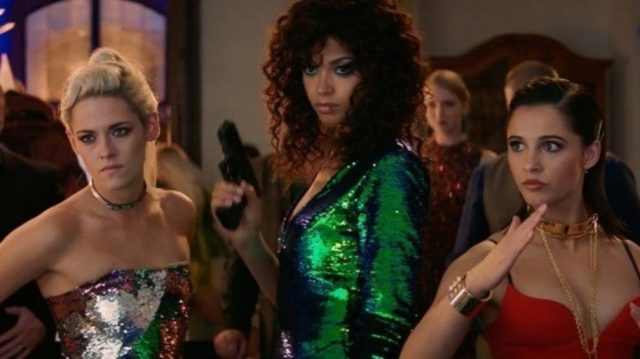
Unfortunately, this problem extends to the other two Angels (well, technically, one Angel and one recruit), with Scott and Balinska more clearly struggling in their parts. Balinska is especially miscast as the ensemble’s experienced, steely MI6 veteran, seeing that Balinska is a complete unknown in her early 20’s, and sure enough, Balinska looks like a green, young amateur when placed next to Stewart and Scott. Scott, meanwhile, has to play Elena as an intelligent, but uninitiated field liability, who is inexplicably roped along with the two Angels because the plot says so. Since Scott has already proven her chops as a tough, yet likable heroine in Power Rangers and this year’s Aladdin remake, she also feels miscast as Elena.
This represents a fundamental issue with the Charlie’s Angels reboot that could have had a very simple solution; Balinska’s and Scott’s roles should have been swapped. Scott would have been far more believable as the tough, sassy MI6 veteran, while Balinska, being an unknown actress who looks and feels like she’s barely out of high school, would fit a lot more as a young wunderkind hacker-type whom the audience has to grow to appreciate and root for, despite the odds constantly being against her. To be fair, Balinska and Scott try their hardest to make their characters work, and while Scott does manage to be charming enough as what’s essentially an Angel-in-training with an unusual skillset, Balinska just ends up being dull and unmemorable, even if she is admittedly a pretty good fighter. These issues frequently hamstring most of the new Angel ensemble, with Stewart having to carry most of these new heroines’ appeal single-handedly, in turn also making you long for the much better-balanced ensemble that Cameron Diaz, Drew Barrymore and Lucy Liu provided in the previous two Charlie’s Angels movies.
Despite being a continuation of two existing incarnations of the Charlie’s Angels franchise, 2019’s Charlie’s Angels reboot very clearly wants to carve out its own distinct mark. Attempting to marry the more detective-themed stylings of the original 1970’s TV series with the over-the-top action flavouring of the 2000’s-era movies, this new Charlie’s Angels reboot also attempts to truly give the franchise a woman’s touch, with a female-first message that wants to serve as an empowerment anthem for the female world-savers of tomorrow. That’s all well and good, but the storytelling execution in this new Charlie’s Angels movie is seriously faulty in several respects, ultimately serving as the weakest element of a shaky reboot.
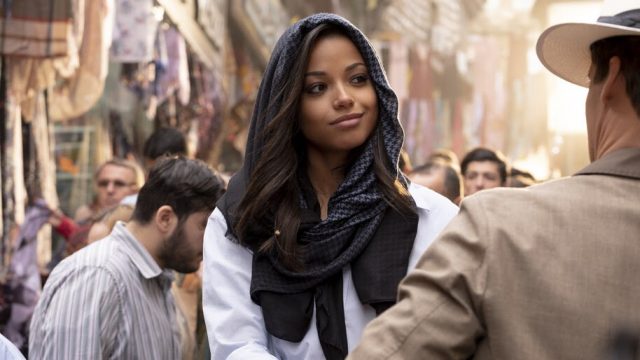
The first problem with the storytelling here is that the way the story is presented feels very clunky and weirdly convoluted. The story premise itself is not complicated, involving a hacker tool-turned-human EMP-weapon (I know, it’s ridiculous, but so was every other Charlie’s Angels movie macguffin), which ends up falling into the wrong hands, necessitating the current roster of Angels bringing in the weapon’s accidental creator to help them reclaim it. That’s pretty straightforward as far as spy movie narratives go. Despite this however, Charlie’s Angels wastes too much time on petty details and over-explaining itself, which attempts to create the impression that the movie is larger than it actually is. In reality though, it just tells an otherwise basic story in a needlessly convoluted and sloppy manner, which amounts to a few bright spots sandwiched between a lot of tedious filler.
The second major problem with the storytelling in this new Charlie’s Angels reboot is that, like the prior two Charlie’s Angels movies from the previous decade, it’s trying way too hard to be taken seriously, albeit in the opposite direction as its two cinematic predecessors. Right from the first minute, this Charlie’s Angels reboot is bludgeoning you with its pro-female messaging, with all the subtlety of a brick to the face. Again, its intentions are good, but whereas the previous two Charlie’s Angels movies tried too hard to be cool and stylish, essentially turning them into cringe comedies by 2019, this new Charlie’s Angels movie tries too hard to be intelligent and ‘woke’, which is, sadly, the greater of two shortcomings. The prior two Charlie’s Angels movies are not good movies by the standards of the 2010’s especially, but they’re at least entertaining and tonally consistent in their unapologetic stupidity.
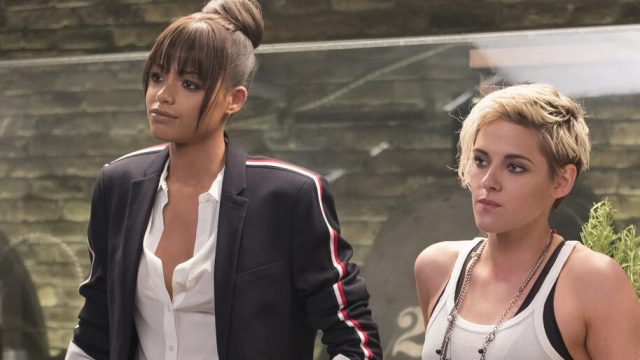
By contrast however, 2019’s Charlie’s Angels is ultimately less fun to watch than its two big screen predecessors, because it’s more concerned with justifying itself as a female empowerment anthem, rather than focusing on telling a good story with universally good characters. Again, some of the storytelling ideas in this reboot really are great, and do a solid job of bringing the Charlie’s Angels franchise into 2019. That inspiration is somewhat squandered however when the movie wastes too much time telling viewers about how cool its heroines are, rather than showing viewers how cool they are. Like I said, Banks really needed to be reined in with some of these problematic scenes, which stop the movie cold to shove a female-empowerment message at you, one that would have worked a lot better if it flowed organically with the storytelling. This is part of the reason why 2019’s Charlie’s Angels feels so uneven and scattershot in its execution, because it can’t just settle into an entertaining groove without getting strangely insecure about what it wants to say, and that insecurity too often intrudes on a Charlie’s Angels reboot that can be fun at times, but definitely deserved to be more fun than it ultimately is.
Elizabeth Banks cut her teeth as a budding director with 2015’s Pitch Perfect 2, a pretty good sequel to a pretty good movie. Banks thus has quite a bit of promise as a director, and she’s certainly reaching for the stars by assuming the majority of creative control for Sony’s latest attempt to reboot Charlie’s Angels, which she writes and produces on top of directing and co-starring in. That’s quite the undertaking for Banks, who is undeniably talented as a performer, but still seems to be finding her voice as a writer and director. Banks’ direction is certainly serviceable in Charlie’s Angels, injecting a girlish charm into the story presentation if nothing else, but it’s her script that feels more problematic, taking a promising story treatment, and bogging it down with weirdly overwrought story progression for what’s ultimately a pretty by-the-numbers spy movie plot.
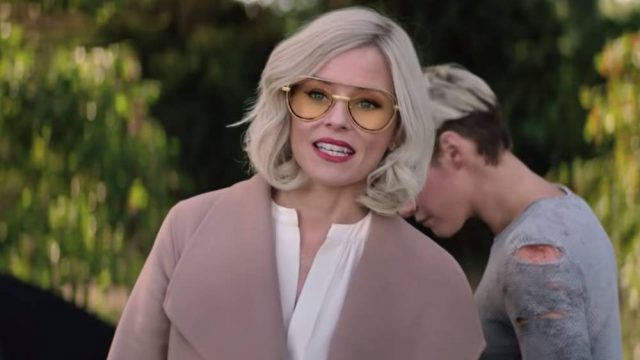
Banks also displays a greater eye for the character-driven scenes in this movie than she does for the action. There’s a couple of solid action set pieces in Charlie’s Angels, but a lot of the action direction feels like it lacks a sense of real impact. The stunt work is pretty good overall, but nothing special, and while the rapport between the Angels is generally alright, it doesn’t really sizzle the way that the previous cinematic trio did in the prior two movies, even amid storylines and direction that were so proudly absurd. The result is direction that, again, feels frustratingly uneven, sometimes settling on a consistent feel and tone, but at other times getting lost in the wrong details, or failing to balance the themes with the presentation. It’s not enough to derail the entire production, especially since this movie’s bright spots are certainly bright enough to entertain on their own merits, but this problem in the direction does leave this reboot attempt feeling a little stillborn, failing to justify the revisiting of a property that already doesn’t feel like it’s gotten better with age.
Charlies Angels’ big screen reboot is all over the map in terms of quality and execution. At times, it’s fun and charming, and manages to effectively present a more modern, female-empowered take on the franchise. Too often though, this new Charlie’s Angels movie is a bit of a mess, once again falling into the trap of trying too hard to get you to take its heroines and their mission seriously, even in its clear efforts to do the complete opposite of what the prior two movies’ narratives and direction aimed for. As a fluffy, reasonably well-intentioned girl flick, Charlie’s Angels is good enough for those who are already interested in this sort of movie, but I’m not surprised that it flopped at the box office, nor do I think that this new take on the franchise is ultimately enough to lend itself to further sequels.
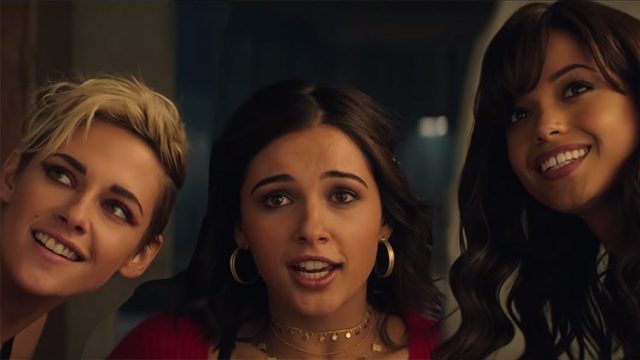
In the end, this Charlie’s Angels revival feels weirdly overthought, despite the fact that it’s not a complicated movie, and in being so weighed down, it fails to truly soar. This movie even launched with a Sony-approved pop single, “Don’t Call Me Angel” by Lana Del Ray, Ariana Grande and Miley Cyrus, which is yet more over-produced nonsense that doesn’t even track right from the title. Granted, I don’t hate this Charlie’s Angels reboot, but it’s still a pointless reboot that no one asked for, one that feels like it was reverse-engineered to chase a trend, rather than truly standing on its own appeal. This movie may not entirely botch its female-empowering ambition, but it also doesn’t successfully revitalize the long-dormant Charlie’s Angels property, which, at this point, still feels like it was better left in a simpler era for feminism.

